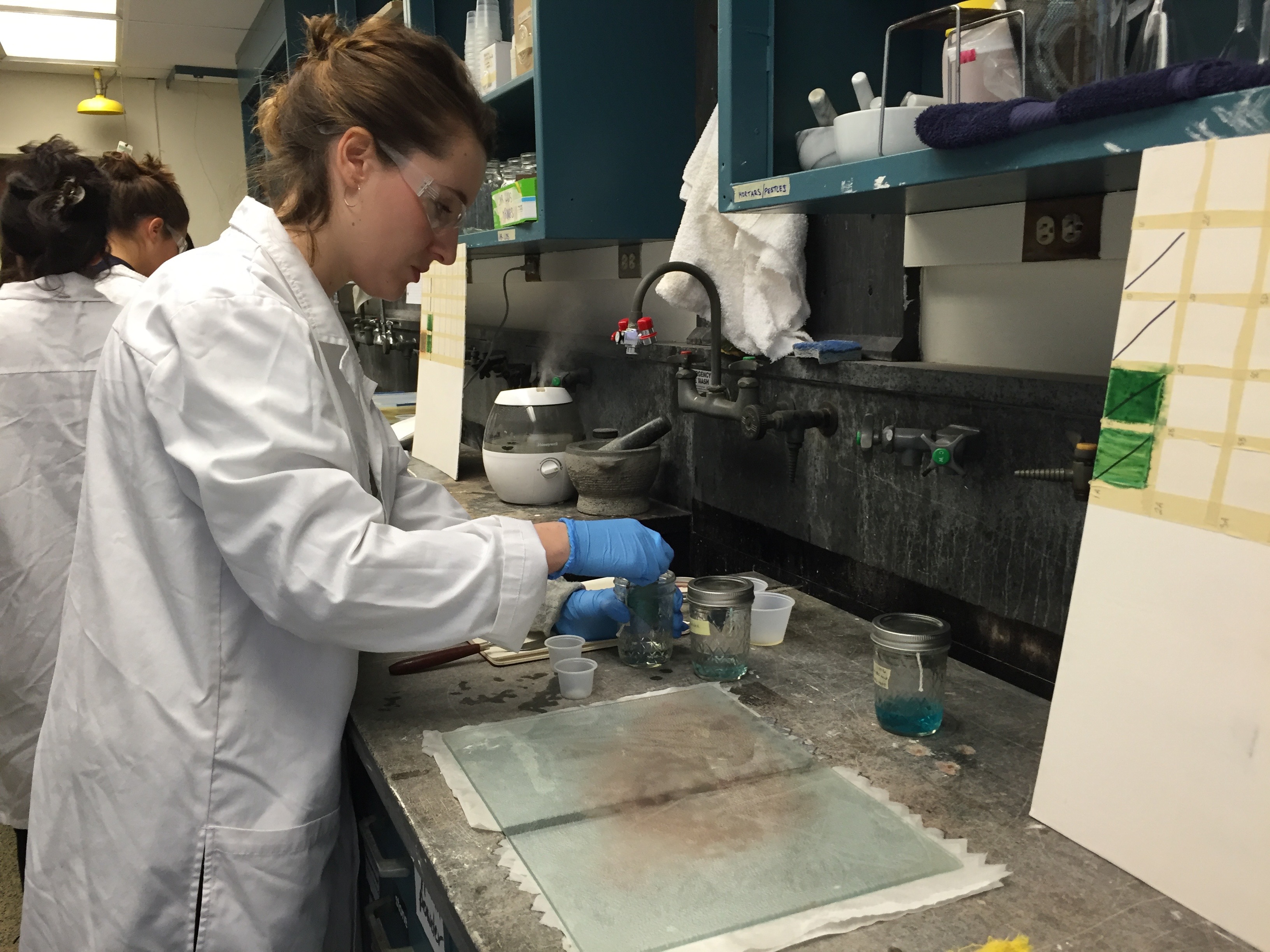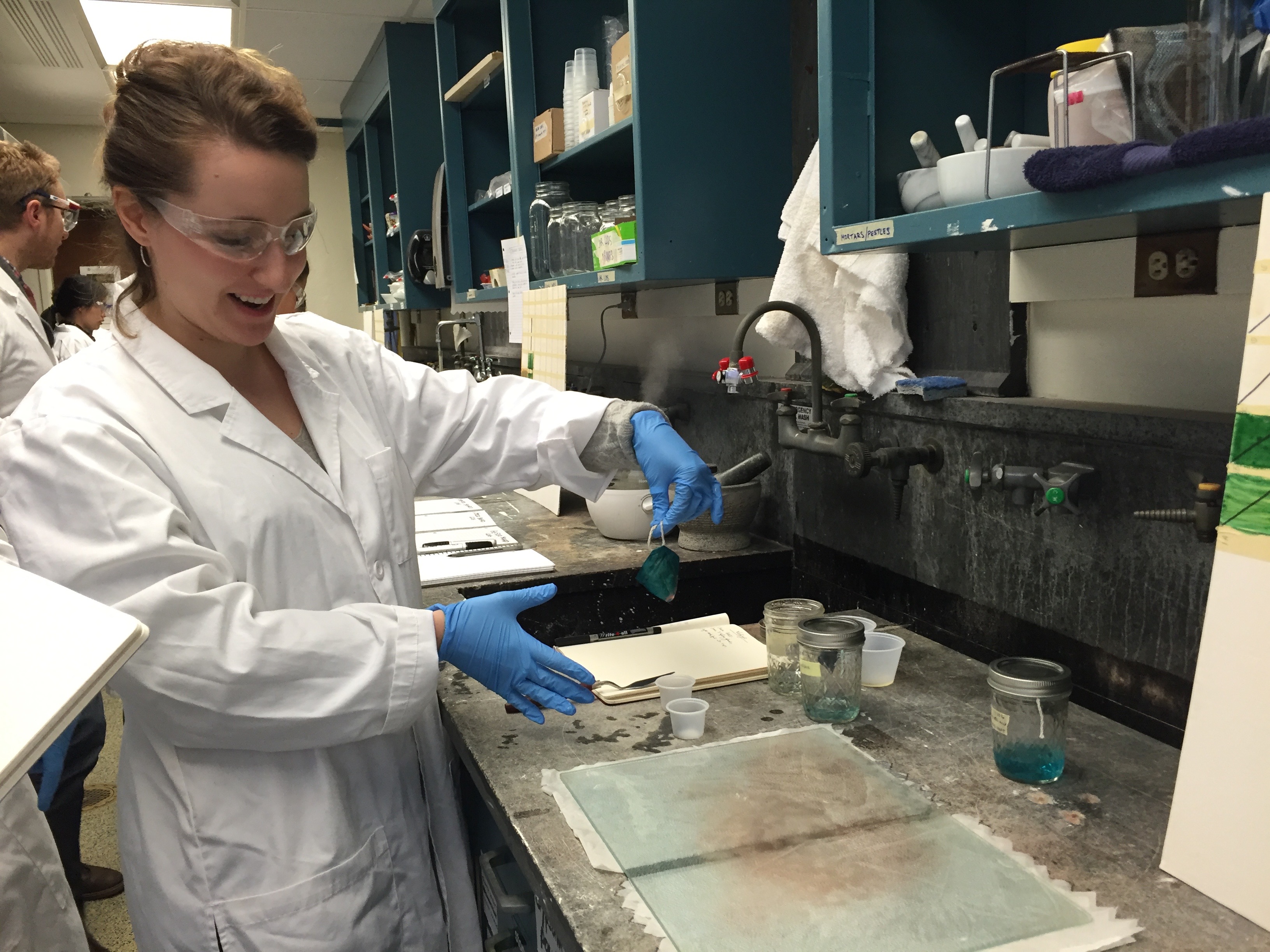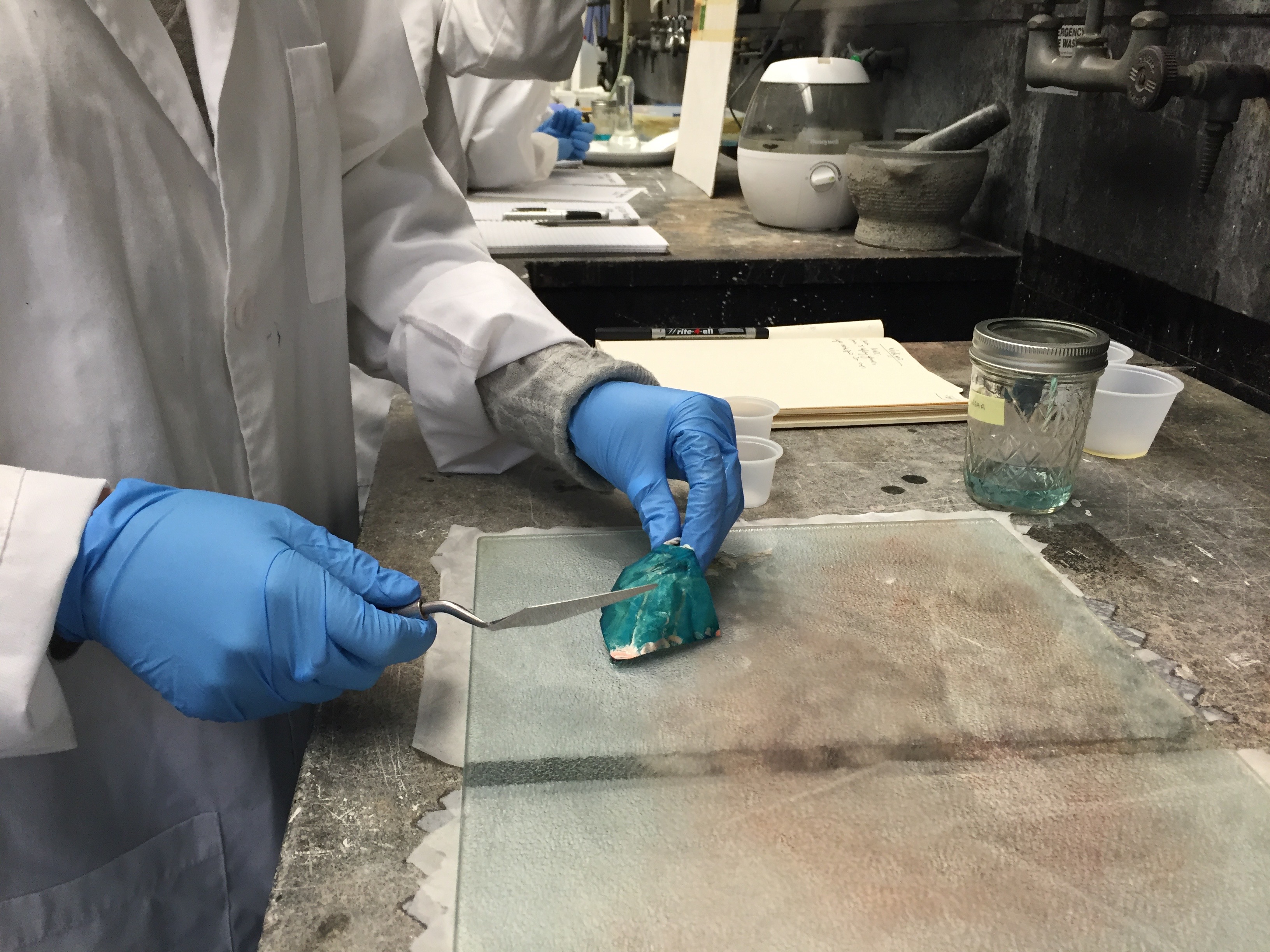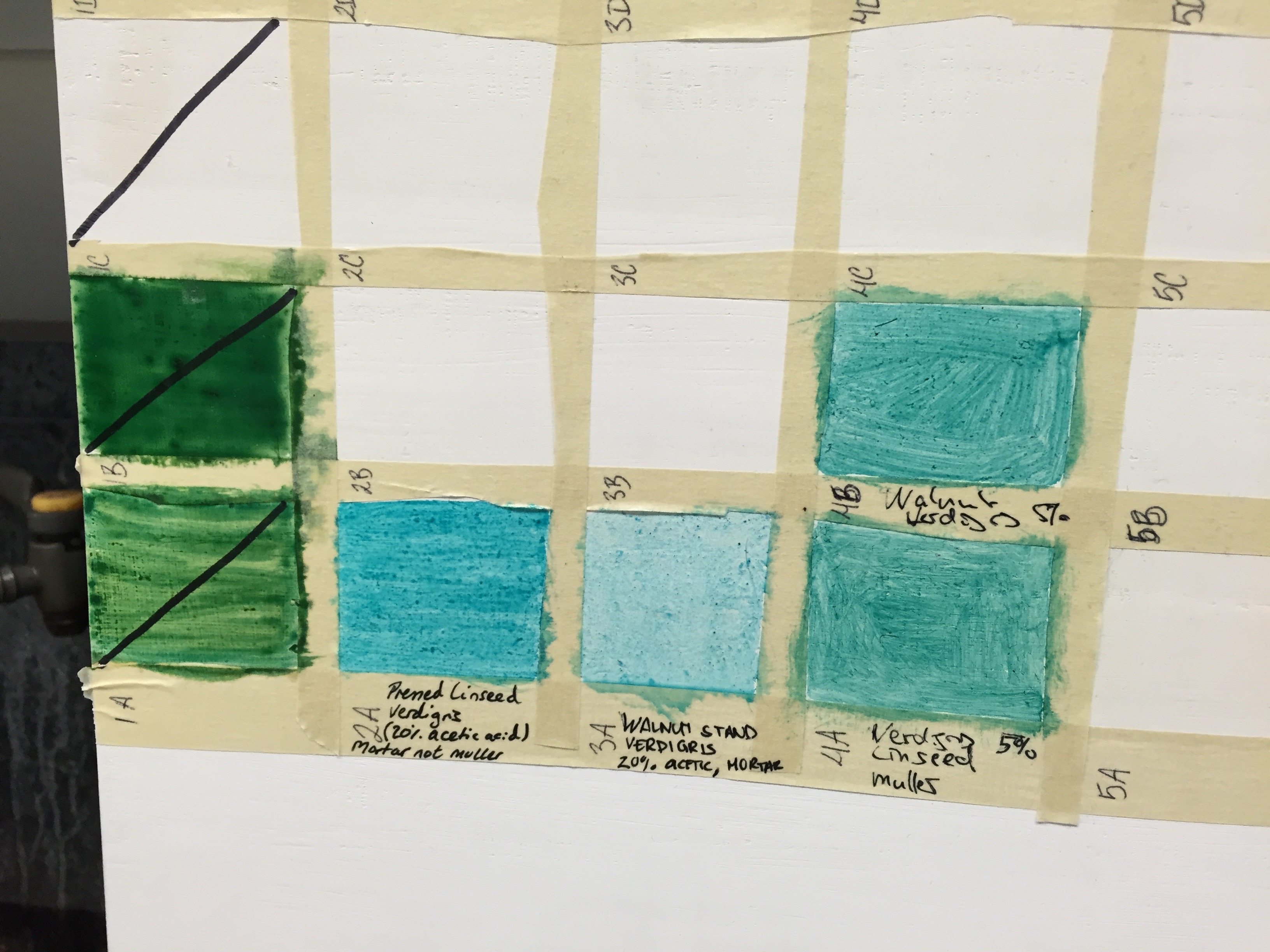Verdigris Pigment Making
Table of Contents
Ann-Sophie Barwich, Ngeri Ndungu, Cleo Nisse, Jenny Boulboullé
Date and Time:
2016.February.12, 2:20pm
Location: Chandler 260Subject:
Preparation of Pigments
The Plan in Theory (hah!):
--> scrape pigment off copper plate with scraper (on separate plate)
--> mix pigment with oil (linseed and/or walnut) on glass plate (with preferably a muller but can also be a mortar)
--> paint it on board (label it)
--> clean brush
--> repeat procedure with other oil
--> clear up the space
*note: I missed first class and was thus not involved in making vergidgris - I worked with Jenny's preparation from last semester*
The Procedure in Practice... (ahem)
Set-up Preparation and general Notes
materials: glass plate for mixing, plastic cups for oil plus plastic syringe as a pipette, scrapers and plates for pigment harvesting, verdigris (Jenny's 5% vinegar probe; Cleo's 10% vinegar probe)
Donna (Bilak) wets paper towels before putting larger glass plate on it (on which to mix pigment with oil) -- I forgot to ask why she was wetting the paper towel

We start out with division of labor (Cleo scrapes verdigris 10%, Jerry takes notes, Jenny and Ann take pictures and ask questions) but we end up preparing verdigris individually (though partially pairwise: Cleo and Ngeri, Jenny and Ann), which ends up with lack of work-space and interference of arms operating occasionally
Procedure Observations
--> removing the copper plate from the glass filled with vinegar, the room quickly gets drowned in smell (turning from pine-like quality to pungent in about 5 (?) minutes, but I failed to ask the others whether they noticed a similar switch; Cleo comments on the smell as having a different quality - not pine, but I forgot to note down what quality she described precisely --shite -- I remember it being surprisingly different in quality perception)
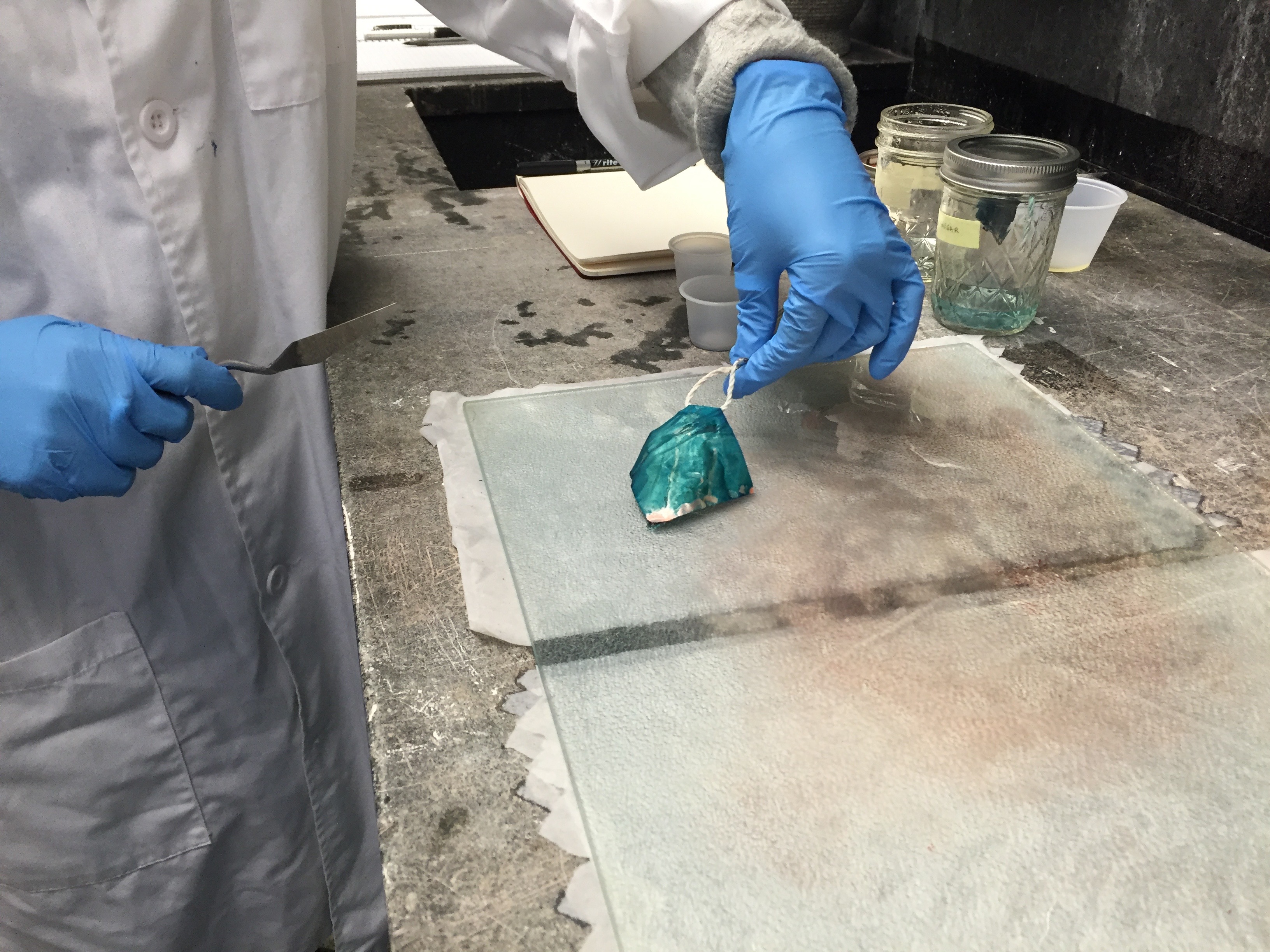
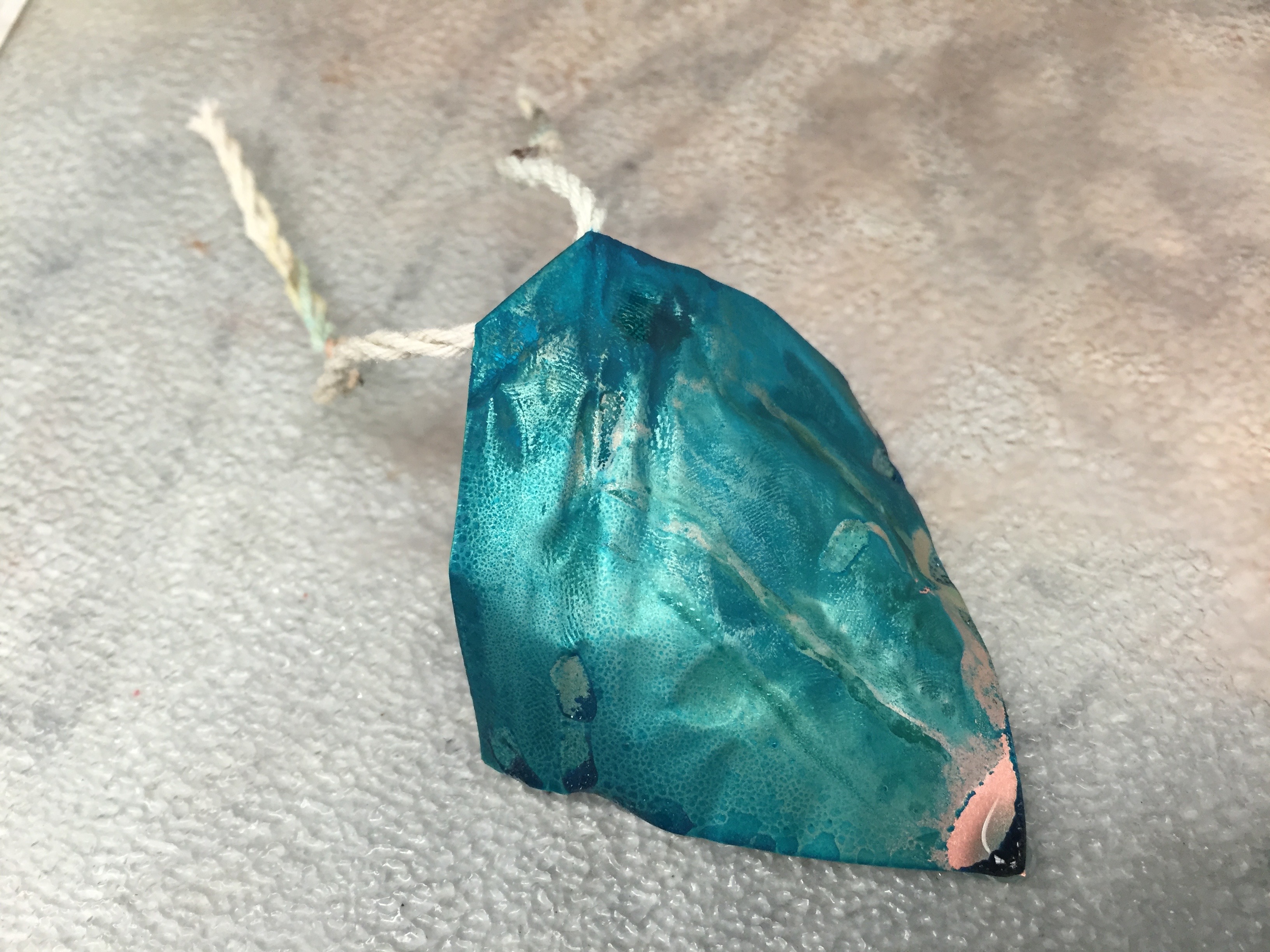
--> labelling: small plastic containers with either linseed or walnut oil not to confuse them
-->scratching the pigment off the copper (starting with Cleo): she's clearly trained and did this before, very elegant and efficient handling, I ask her about her technique, she describes it as scraping -- we're starting to take turns. Since now all our gloves are contaminated with verdigris it becomes tricky taking notes and photos in parallel with doing the bench procedures
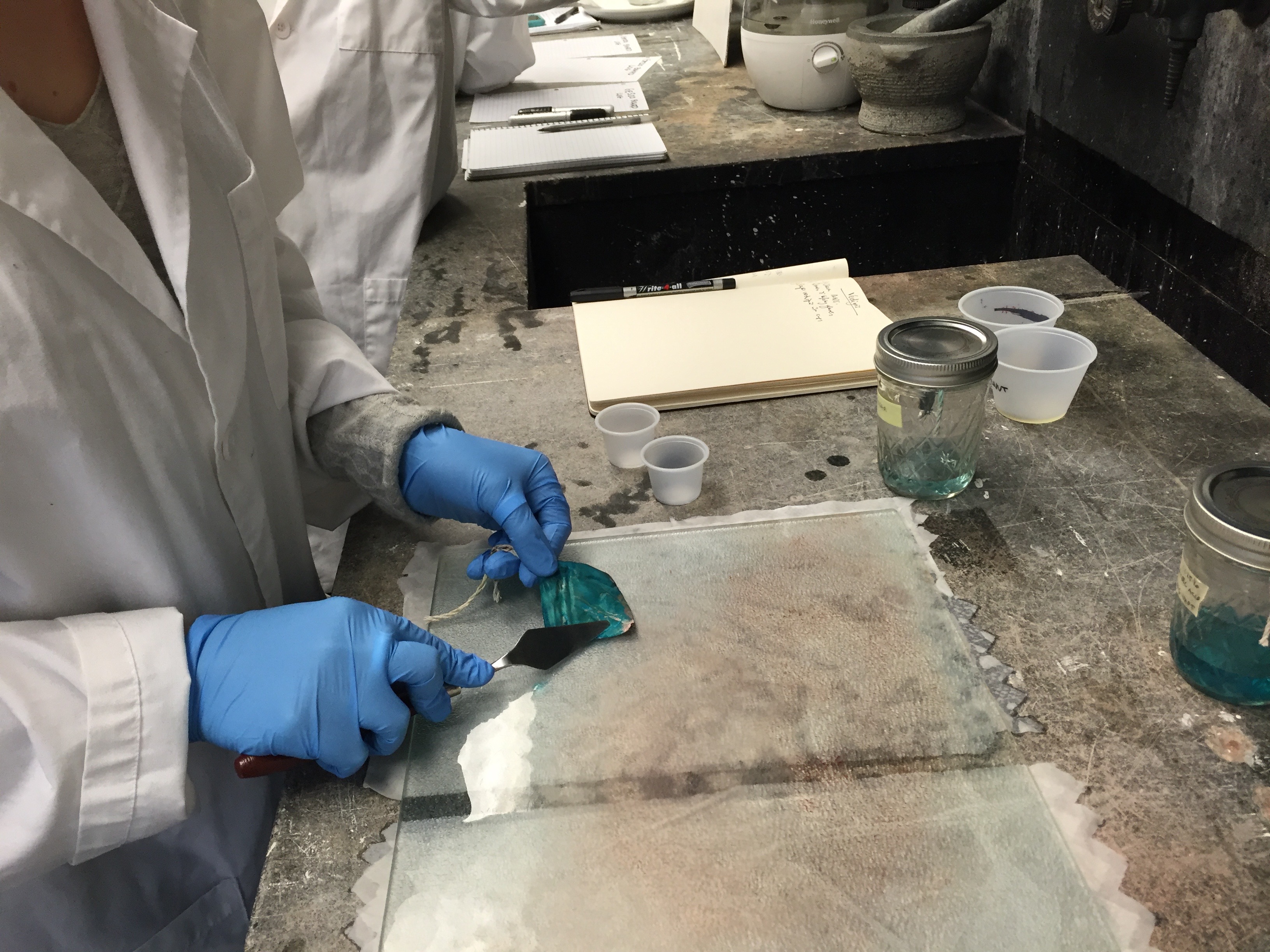
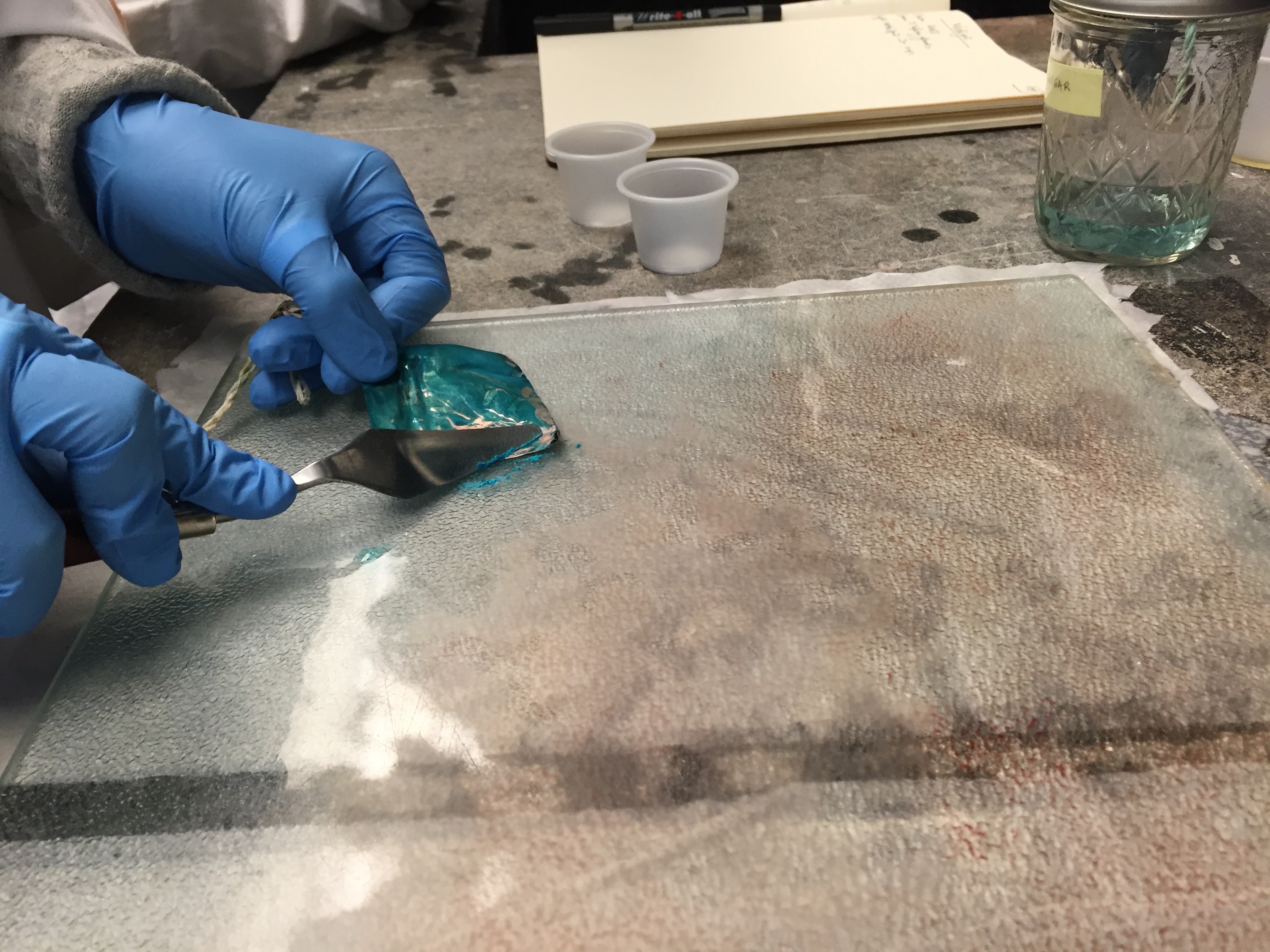
--> Jenny suggests we give it a try, too. We are using the second vergidgris-copper plate she prepared last year (with 5% Vinegar)
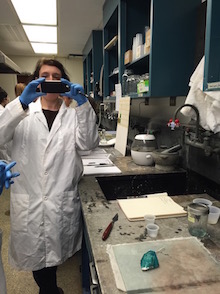
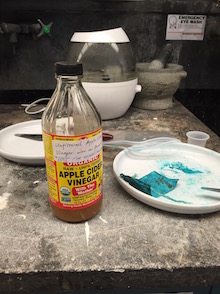
--> Cleo compares my pigment removal technique with using a saw, but commenting on it being surprisingly effective, I start becoming a bit OCD in wanting to scrape the entire pigment off -- and get too slow to follow up with the speed of the others in class
--> the smell makes me feel dizzy and uncoordinated, I feel very distracted by tracing how my perception of its perceived quality changed - not pine-like quality at all anymore, mostly seems to hit the trigeminal nerve rather than the olfactory ones
--> the color of the harvested pigment displays different color tones of blueish-green (different shades, surprisingly wide range from lighter to darker)
--> Jenny takes on the other side of the copper, Cleo and Jessy have already processed to mixing the pigment
FIRST TRIAL (linseed)
-->Mixing the pigment with oil (we are now working individually):
mixing pigment first with cold-pressed linseed oil, using the muller, works much better than Jessy's first trial with the mortar, paint is less grainy, very smooth and dark green texture - starting with 1 drop of oil (using a syringe without needle), first I use not enough pressure on the muller, Pamela shows me the 8-movement and suggested using more pressure on the mueller), adding a second drop of oil and a bit more pigment
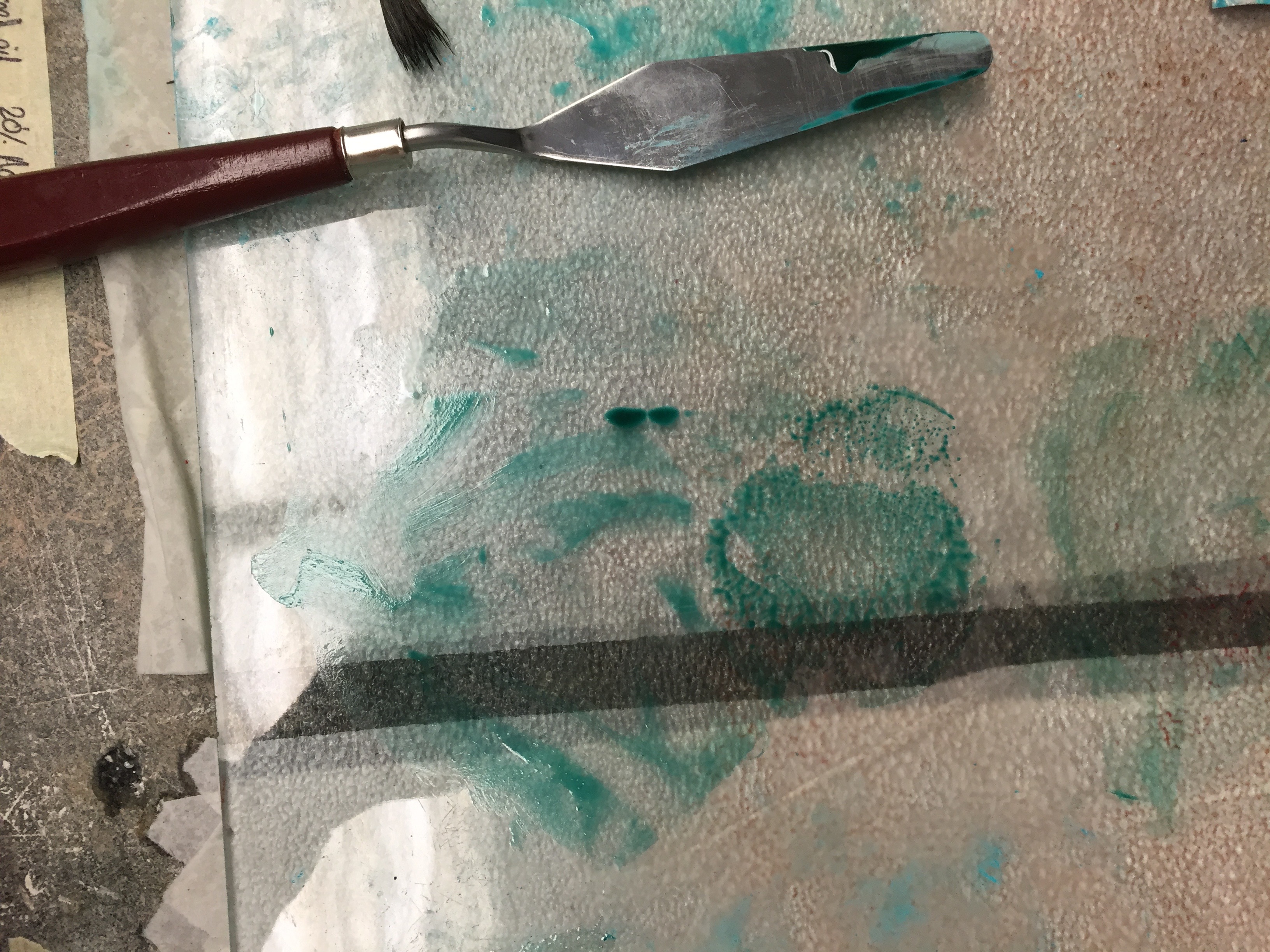
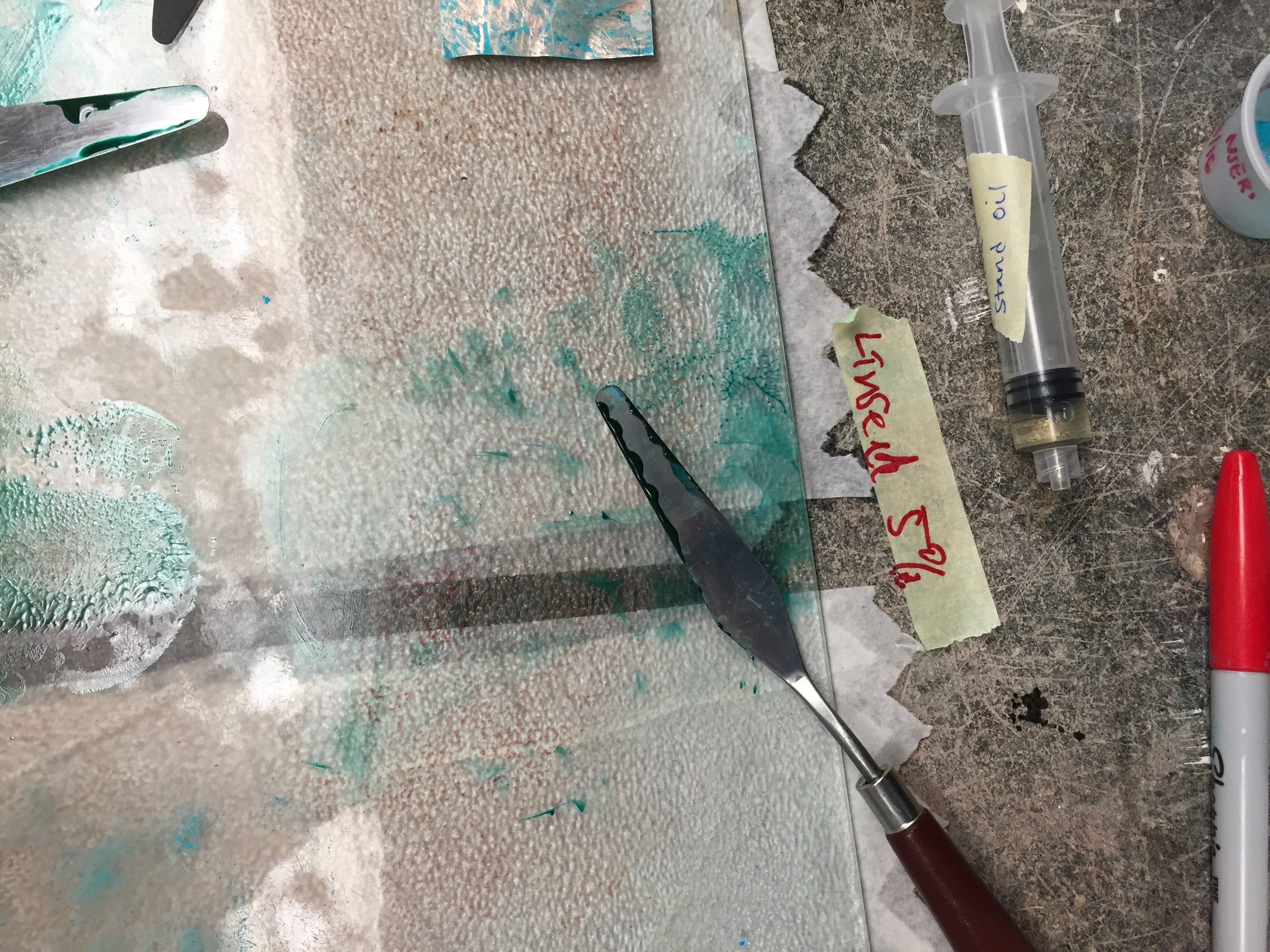
--> Cleo, Jessy, and I mark (with tape) which mixtures on the glass plate are ours not to get confused
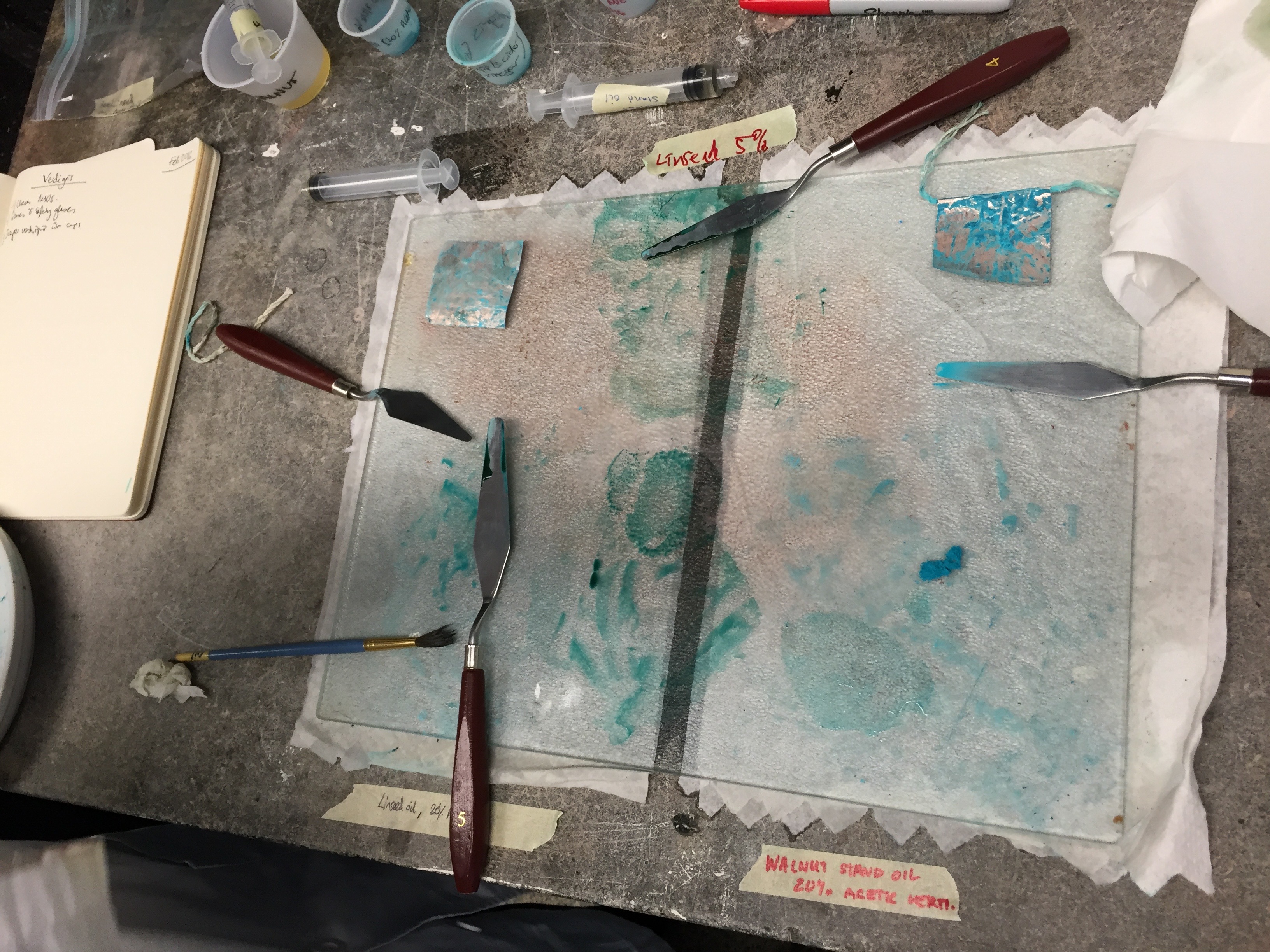
-->applying paint to board: dark green tone, almost no grains, very clear and dark but watery color, application a little difficult as the consistency is oily rather than watery
-->cleaning the brush: cleaning pigments off with paper towel, then washing in first cup of linseed oil, paper towel again, then linseed oil again (Jenny is surprised as rarely any pigment comes off the second time, first washing was quite effective), then paper towel rubbing, then turpentine
SECOND TRIAL (walnut)
--> trying to find the walnut oil, since everyone works separately, there is some confusion, it was sometimes not labelled what is the oil for mixing and what is the one for washing the brushes, note for next time:label everything you pour into something as soon as more than 1 person is involved and interacting (duh!)
--> second trial of pigment mixing with walnut oil: accidentally started out with quite a bit of oil (2 drops), mixing a bit more pigment in -- again with the muller - am surprised to see the same color and texture than the first linseed trial, rarely any grains, nice and deep green
--> applying paint to board: little less mixture than first trial, but again: dark green tone, almost no grains, very clear and dark but watery color, application a little difficult as the consistency is oily rather than watery
--> I almost forgot about the smell but am aware that it is there (strange)
Cleaning up
By now the smell feels insanely present but without distinct quality
Naomi explains the waste protocol (where what why)
-- everyone is cleaning up, so quickly everyone is in everyone's way -- I cannot help but happen to have the Benny Hill tune in mind... (in case anyone else reads this note, which I don't hope... it is that one: https://www.youtube.com/watch?v=MK6TXMsvgQg - now try getting that out of your head!)
-- aaand more smells (cleaning liquid)...
Name: Ann-Sophie Barwich
Date and Time:
2016.February.23, 1:30pm
Location: Chandler 260Subject: Check up on Verdigris
The color seems to have kept its tone. For some reason it looks more "watery", but it does not show in photo documentation and I am not sure whether this is just subjective perception and false memory.
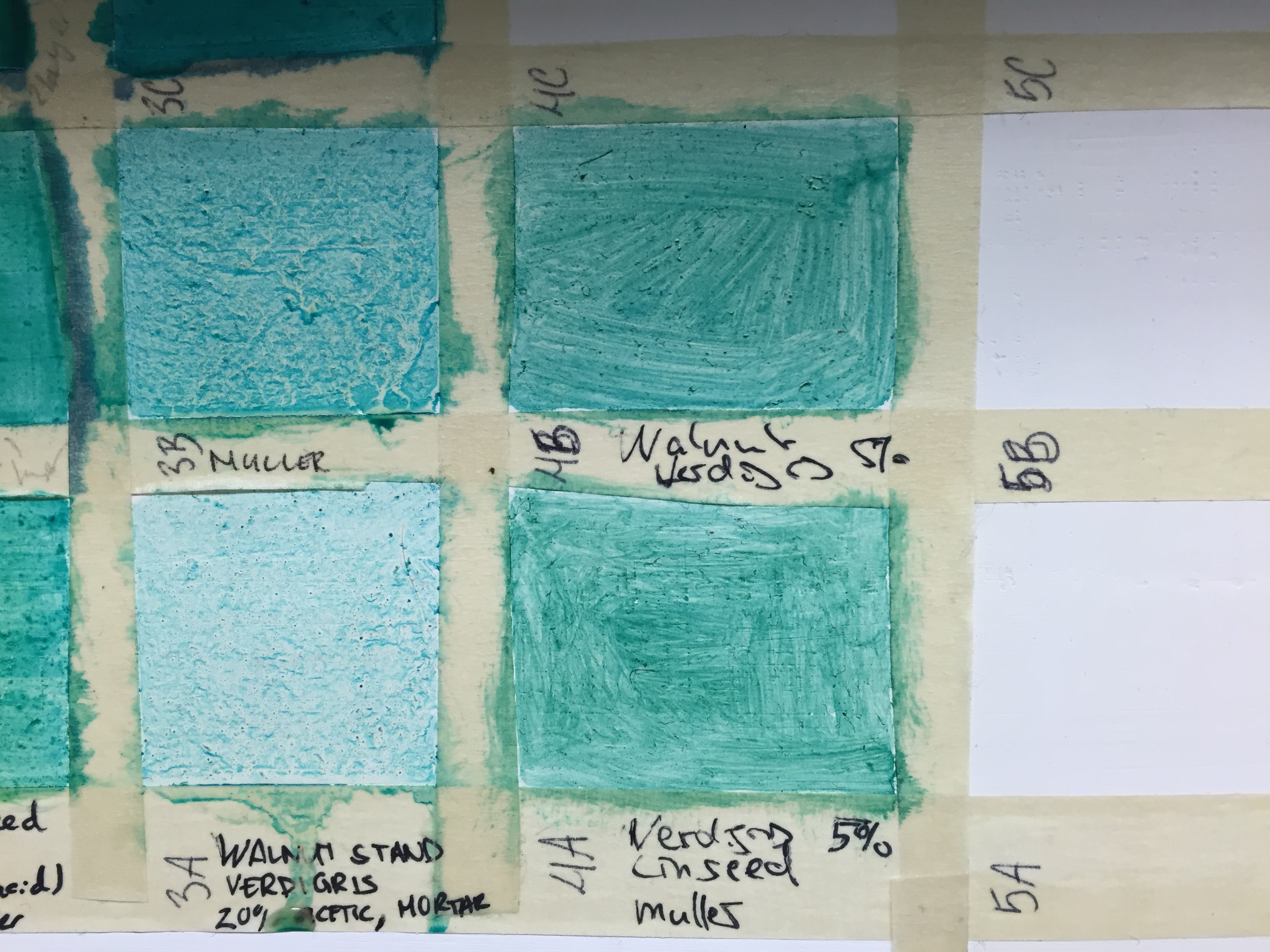
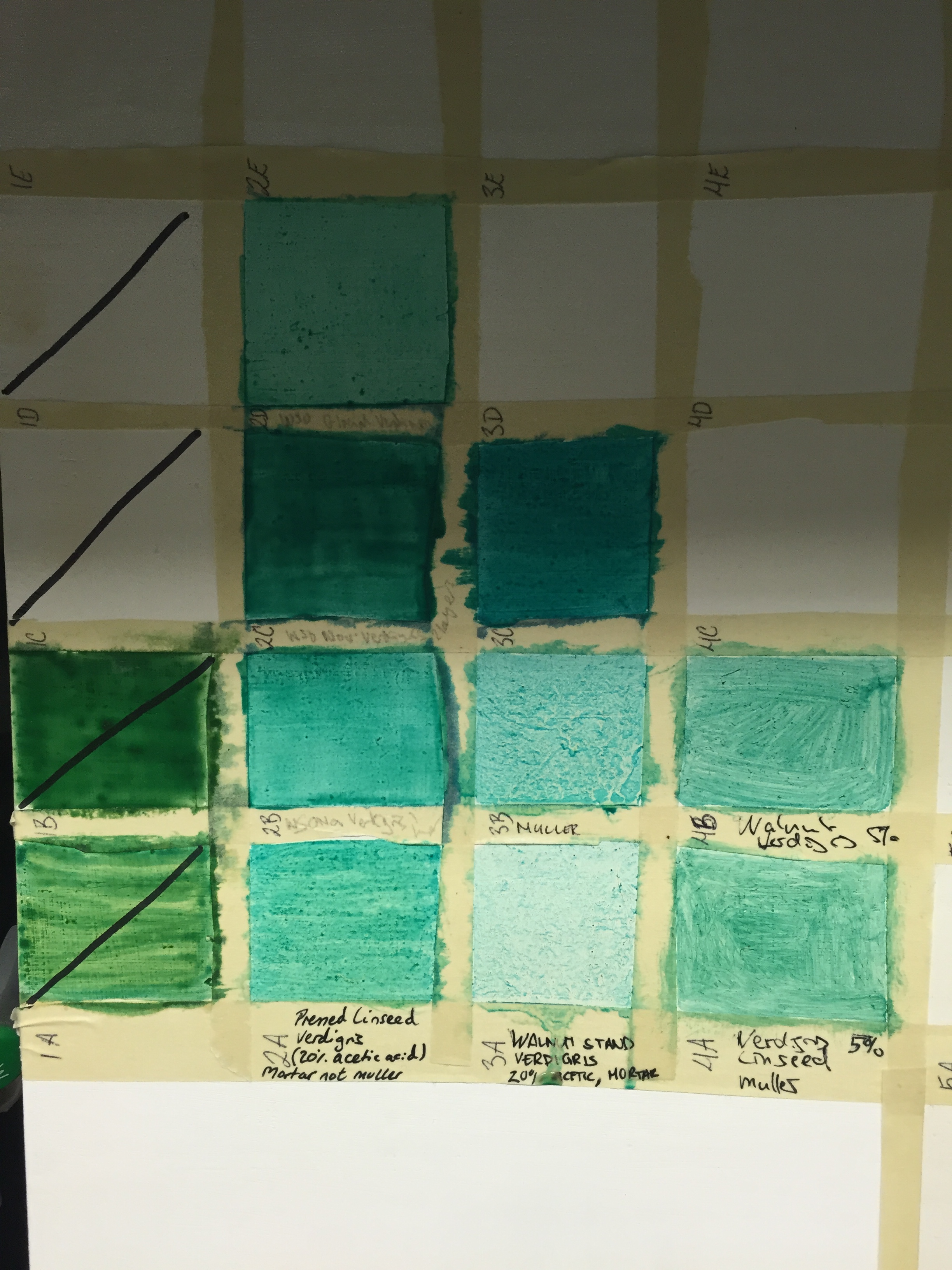
Name: (Also the name of your working partner)
Date and Time:
2016.[Month].[Day], [hh]:[mm][am/pm]
Location:Subject:
ASPECTS TO KEEP IN MIND WHEN MAKING FIELD NOTES
- note time
- note (changing) conditions in the room
- note temperature of ingredients to be processed (e.g. cold from fridge, room temperature etc.)
- document materials, equipment, and processes in writing and with photographs
- notes on ingredients and equipment (where did you get them? issues of authenticity)
- note precisely the scales and temperatures you used (please indicate how you interpreted imprecise recipe instruction)
- see also our informal template for recipe reconstructions
